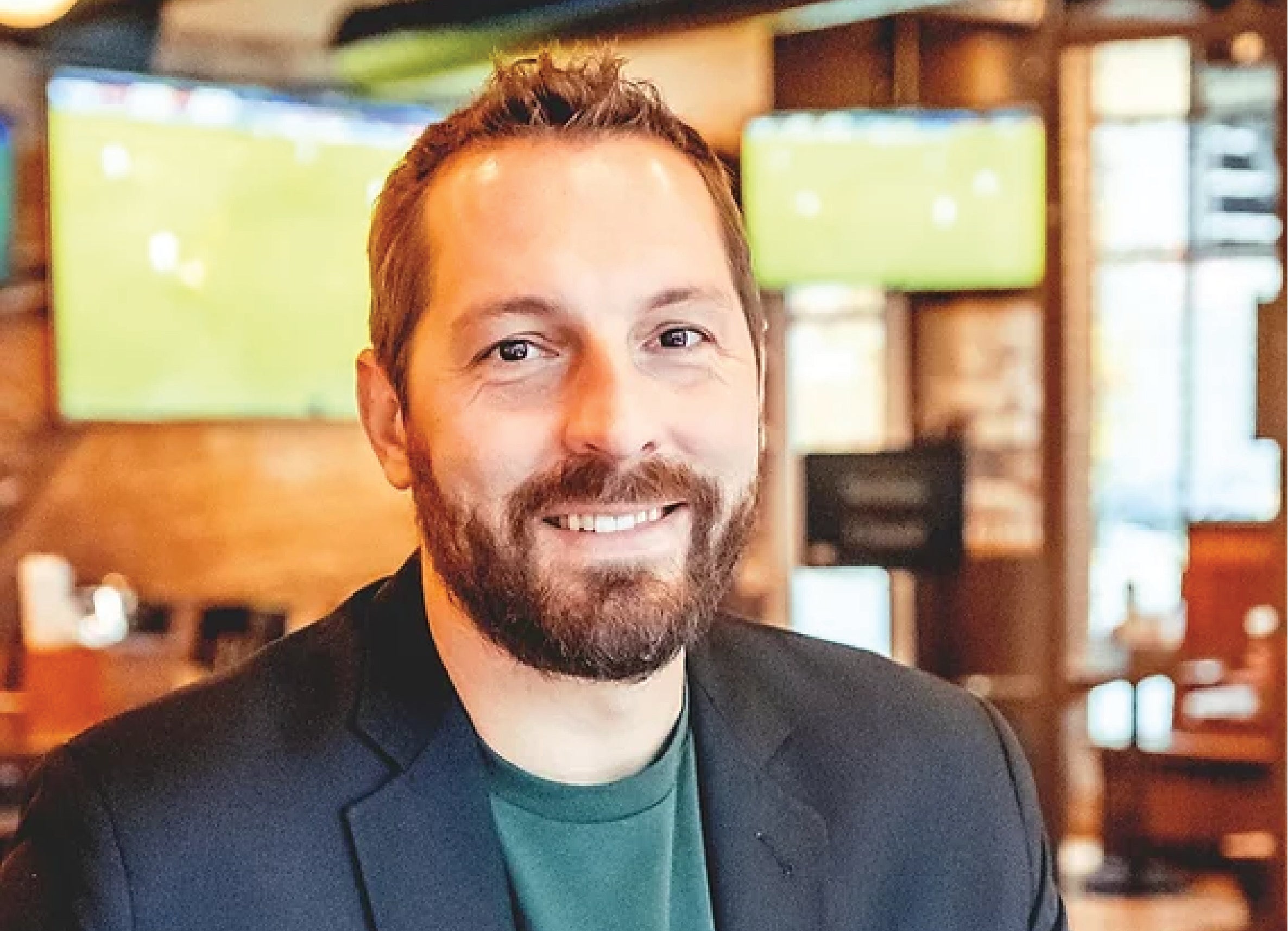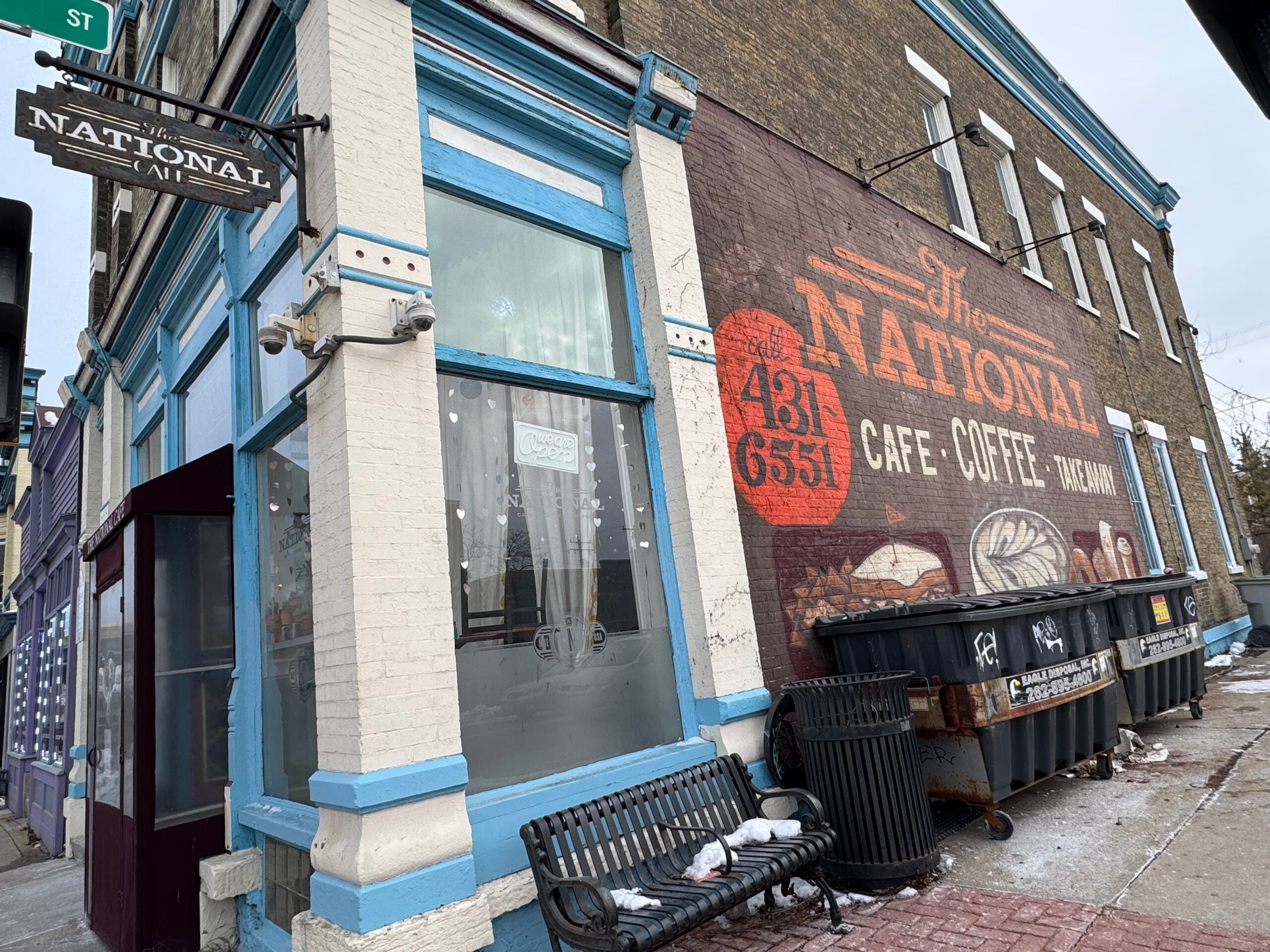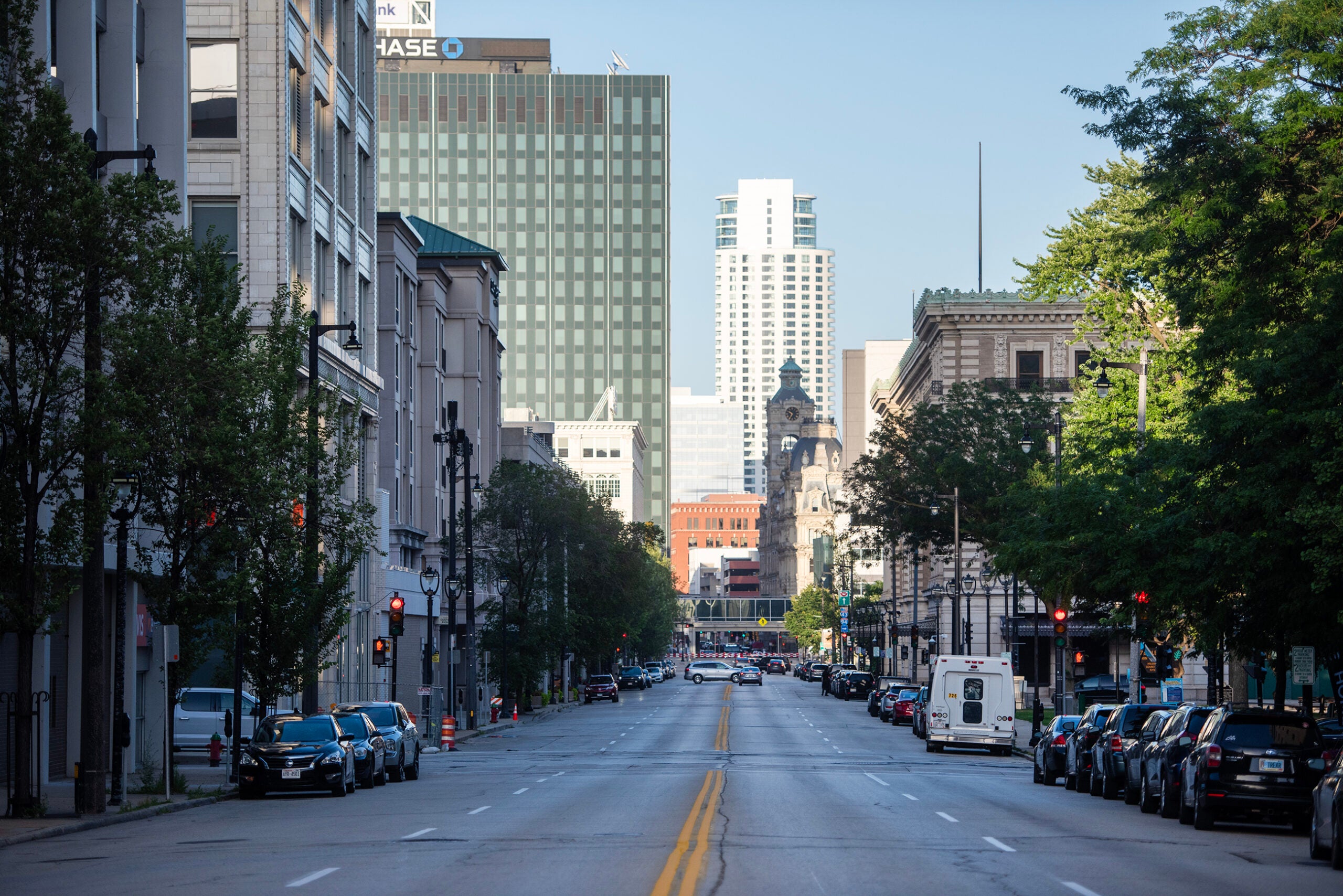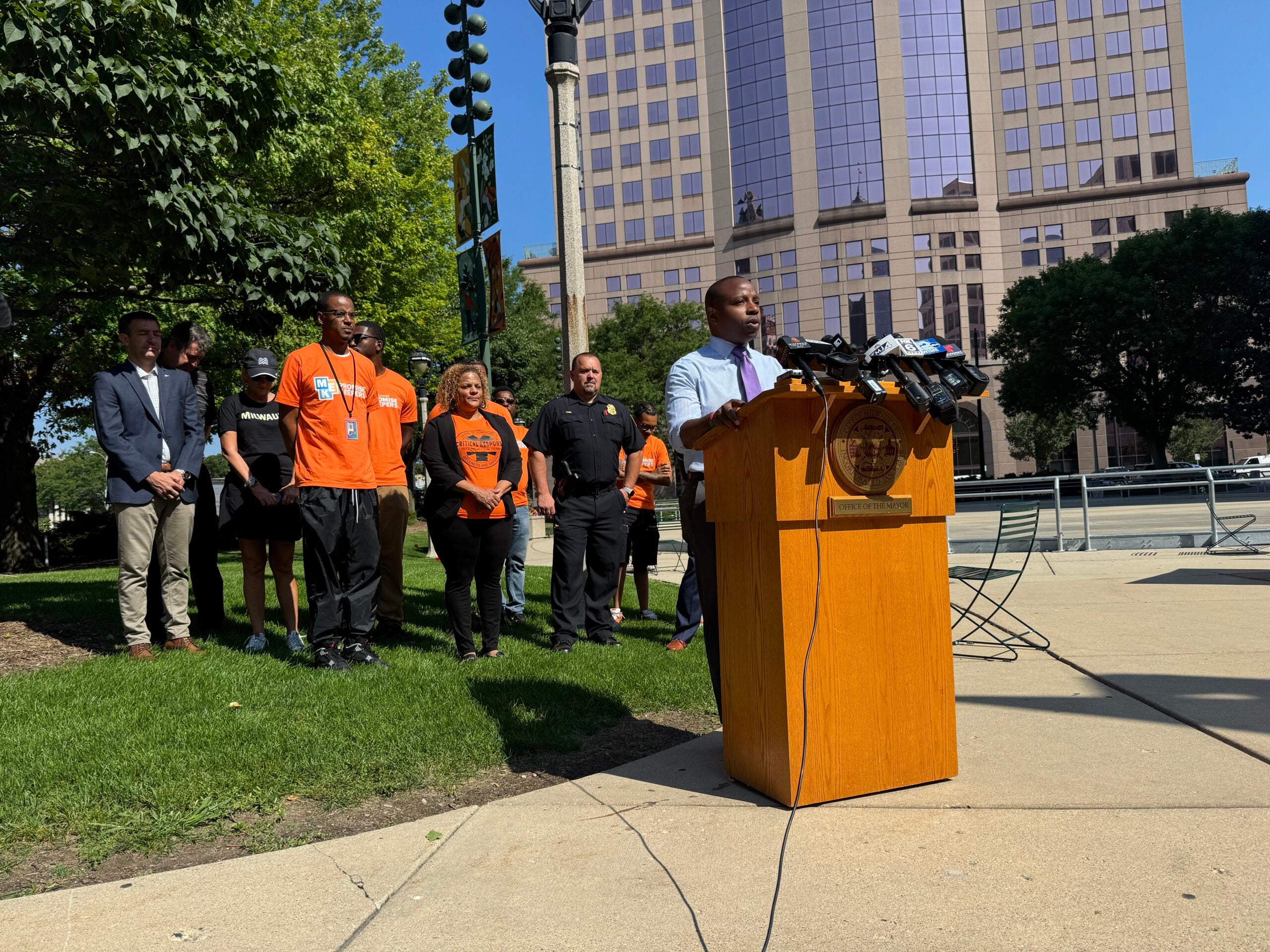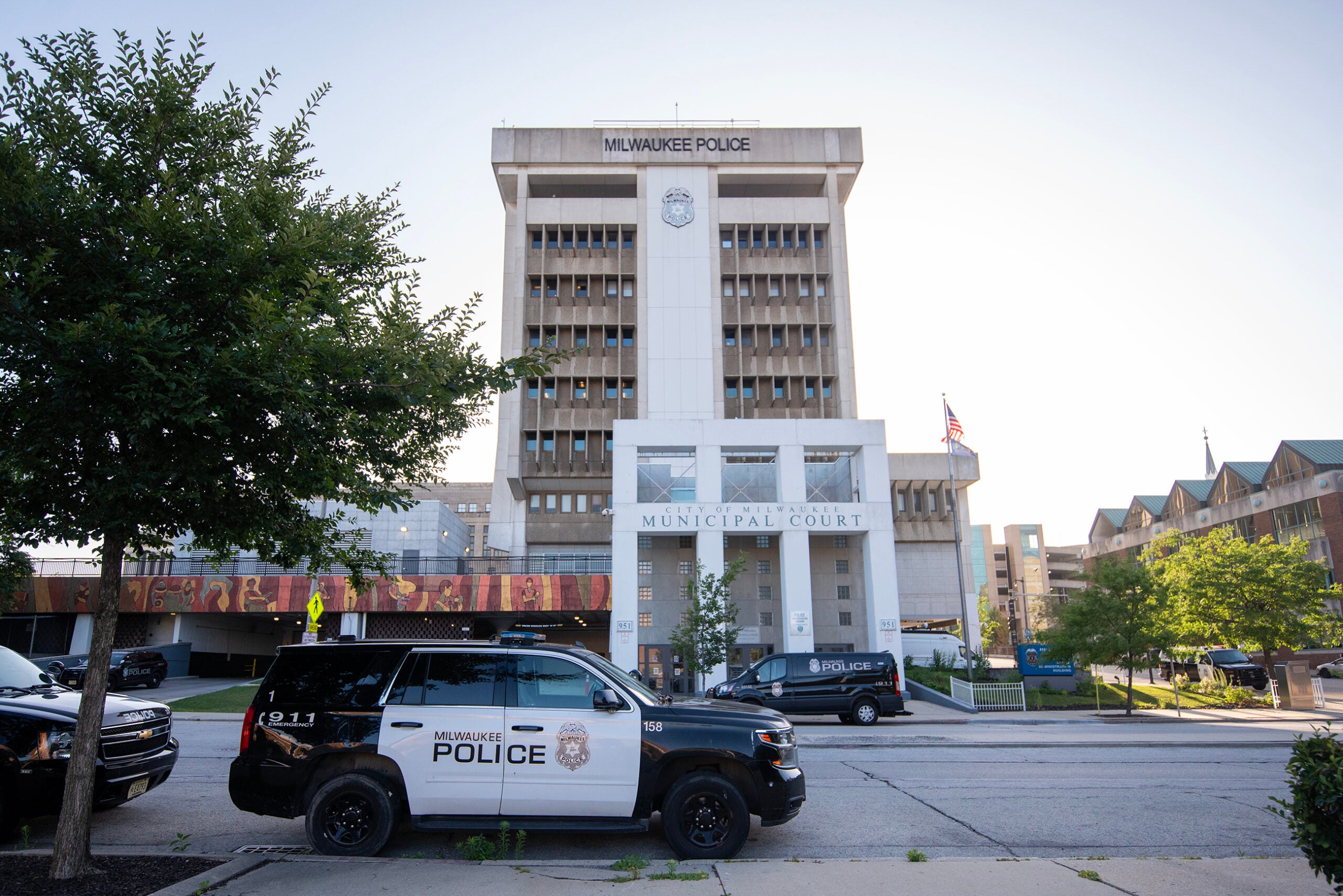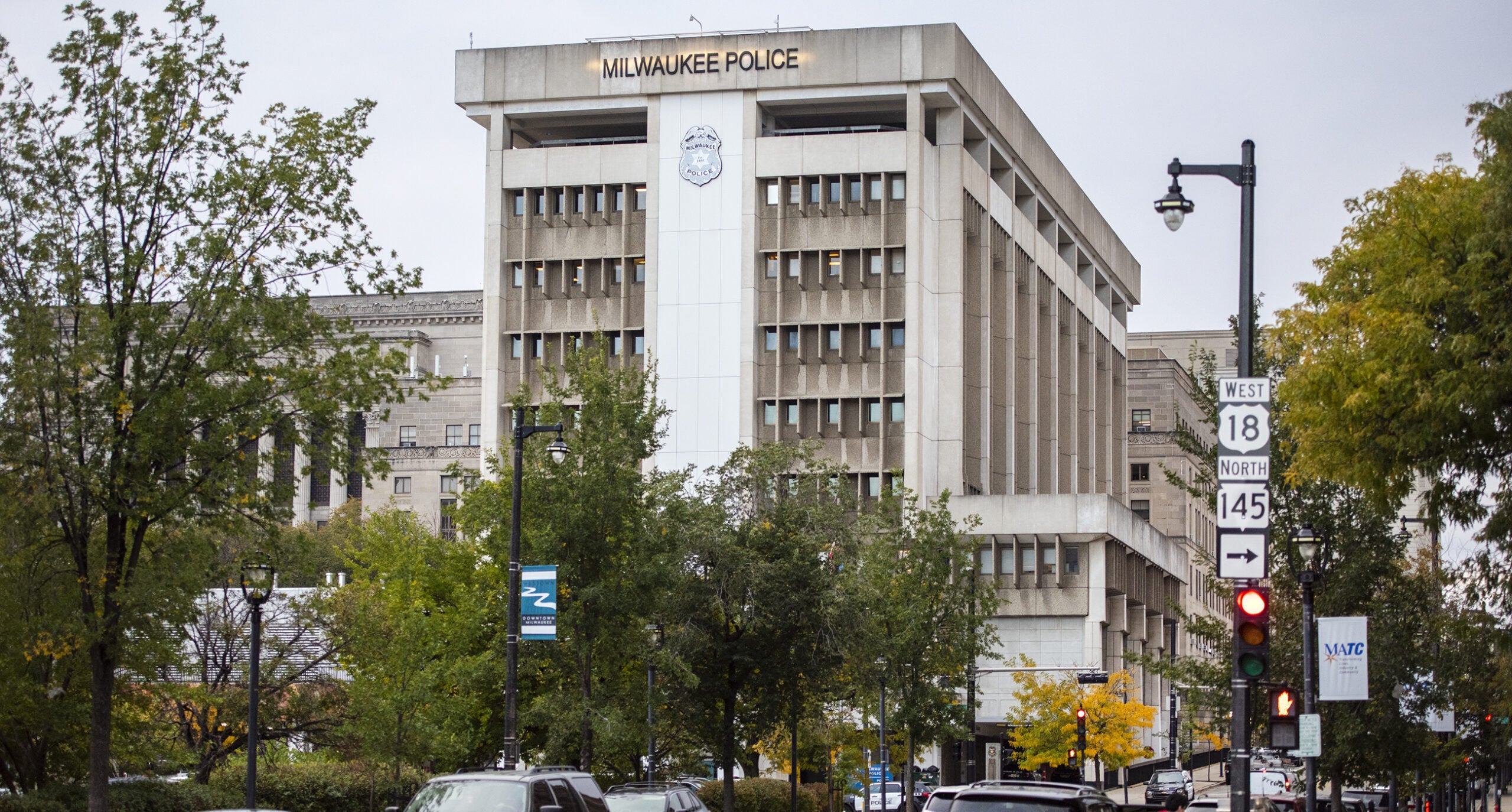A Milwaukee business owner running for mayor said Tuesday he would leave it to the Milwaukee Police Department to address a record number of homicides and the “huge problem” crime poses to the city.
Michael Sampson, who owns Swarmm Events, an event-organizing group in Milwaukee, also addressed the city’s response to the omicron variant, saying its lateness in ordering a mask mandate cost lives.
Sampson said he wants the city to prepare better for the next potential wave of COVID-19.
News with a little more humanity
WPR’s “Wisconsin Today” newsletter keeps you connected to the state you love without feeling overwhelmed. No paywall. No agenda. No corporate filter.
Seven candidates are running to lead Milwaukee and replace former Mayor Tom Barrett, who was first elected to the position in 2004 and left in December to serve as the U.S. ambassador to Luxembourg.
Sampson is the only candidate who hasn’t been on the ballot before.
The primary election on Feb. 15 will determine which two top vote-getters will face off in the April 5 special election. The winner will finish out the last two years of Barrett’s term.
Q&As from interviews with candidates that air on WPR’s “The Morning Show” will be published here. This story was edited for brevity and clarity.
Kate Archer Kent: What are your top priorities for the city?
Michael Sampson: COVID, crime and common sense. The three Cs, I like to call them.
KAK: Can you start from the top with COVID? What do you aim to do?
MS: We just have to be better prepared as a city for the next wave or variant that comes along. I was not happy with our preparation prior to omicron hitting the city. I thought we should have been ready in December prior to winter, flu season and cold season and obviously omicron coming, and we were not.
So, we were late on putting a mask mandate in. I think it cost lives because of it. So, I like to see more preparation leading up to the next variant that might be coming — another tent at American Family Field or keep working on the free masks, and just things to be prepared because we weren’t the last time.
KAK: How would you handle future mask mandates?
MS: I’m a small business owner. A lot of my friends are in the service industry in Milwaukee for bars and restaurants, so I’ve seen the struggles that they went through. I think if you’re going to keep asking them to not make their own decisions and put a mandate in, then I think the next round of ARPA (American Rescue Plan Act) funds that hit Milwaukee needs to come back to some of these people, because they’re the ones that have been hurting and struggling through this.
KAK: Let’s talk about these funds. The city has somewhere around $200 million in unallocated federal funding for responding to the pandemic. How should this money be used?
MS: It went out pretty quick last time. I think they did a good job with getting it to the fire departments last time, opening up some cash flow for our police departments. I would like to see APRA funds next round go to bars and restaurants that maybe didn’t get the PPP (Paycheck Protection Program) loans or support like some other businesses got.
I just had a call last week with a woman that lost her husband to COVID. She got COVID herself. She was on an oxygen tank, and now she can’t do her job. So, her household is down to zero incomes, and she’s wondering where she’s going to pay the mortgage. She’s trying to put two of her grandnieces through Brookfield East High School right now, as well. So, I think we have to look to see people out there that have struggled through COVID that we’re not thinking of that could use some support from these ARPA funds, as well.
KAK: Milwaukee really struggles with record-setting homicides. What would you do to address crime?
MS: I’m a light sleeper, so I’m a little tired this morning. I had probably about three squad cars that went by last night throughout the night. So, it’s definitely a huge problem.
I don’t like to micromanage. I like people to do their jobs. Chief (Jeffrey) Norman has been in for a couple of months now. I’m hoping he’s getting to the point where he’s really got to start tackling a lot of these problems head on. We’ve got to trust him to do his job. So, getting people to put down the guns and really focus on the reckless driving issue that we have occurring in the city of Milwaukee right now.
KAK: What specifically would you do to address reckless driving?
MS: I’d like to see red light cameras get put up, at least in certain parts of the city where we know reckless driving is bad. Not all over the city, but I think it’s going to help slow people down. It’s going to give the city another revenue source by sending out tickets … And (we should get) more roundabouts used.
KAK: No. 3 on your list is common sense. What does that mean?
MS: Going out and getting signatures, I spoke with a lot of folks and reckless driving was No. 1 on their minds. But potholes are No. 2. We have a lot of a lot of bad roads right now. Maybe the infrastructure bill coming from Congress can help fix a lot of those. But it’s not just roads, it’s sidewalks. There are holes in the sidewalks. There are trees overhanging sidewalks. If you go downtown, it’s pretty beautiful down there. We take care of our downtown, but we have to take care of our north and south sides of the city, as well.
KAK: How should Milwaukee expand affordable housing?
MS: It’s a huge problem in our city. We have a lot of apartment complexes that are beautiful going up downtown but not always offering affordable housing. A lot of people that need affordable housing maybe don’t want to live downtown. So, we have to look to develop more parts of the city than just downtown. South side, north side — we need more development on those sides of the city to get people in housing.
KAK: How do you talk with developers?
MS: You’ve got to hit up the big dogs and find out why they haven’t built there. I know you want to build where the money is, but sometimes they’ve made money, and now we need support in (other) parts of the city. So, I think it’s just asking the questions and putting some leverage against these people. And if they’re not going to do it, we’ve got to go out there and find a developer that can.
KAK: How would you tackle racial inequalities?
MS: Inequality is a huge problem in Milwaukee. We’re talking about systematic segregation back to the 1930s or 1940s. We’ve got to focus on the north side of our city. I keep saying that downtown development and business is doing fine. We really have to look to the north side of our city to build up business development to help people find good jobs. Hopefully go out and get some big company to come back to Century City and really raise the north side of our city to match our efforts downtown.
Wisconsin Public Radio, © Copyright 2026, Board of Regents of the University of Wisconsin System and Wisconsin Educational Communications Board.

